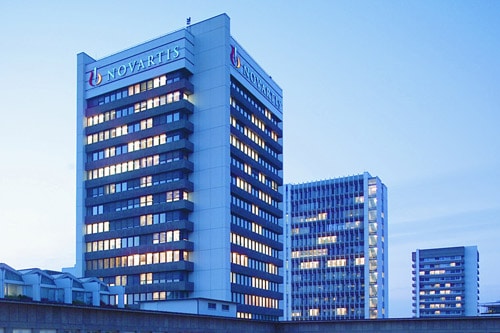
Not everyone thinks Novartis spinning off its Alcon eyecare unit is a good idea. In fact, Moody’s has just downgraded the company’s coveted rating on the back of the decision, as well its plans to spend $5bn raised from asset sales on a share buyback.
Moody’s is downgrading Novartis from Aa3 to A1 – dropping it from high grade to upper medium- grade – saying that Novartis will be less diversified following the Alcon spin-off and will increase its reliance on the riskier, innovative medicines portfolio. Meanwhile, while the share buyback programme fits with Novartis’ capital allocation policy, it prioritises shareholder distribution over reimbursement of debt.
Both actions “come at time of prolonged weakness of the company’s credit metrics,” according to Moody’s vice president and lead Novartis analyst Knut Slatten.
The ratings agency points out that with Novartis already having offloaded its consumer healthcare joint venture to GlaxoSmithKline, after the Alcon spin-off goes through its only non-core asset with substantial value is its minority stake in Roche, worth around $13bn.
Novartis announced it was moving ahead with plans to separate Alcon – which focuses on surgical devices and contact lenses – at the end of June, after first tabling the idea in January 2017.
It kept its options open for the unit for a long time but after a concerted turnaround effort resulted in improved sales and margins triggered the spin-off of the business, which Novartis’ chairman Joerg Reinhardt believes could be worth in the $20bn-$30bn range as an independent entity. Alcon has annual revenues of around $7bn.
Novartis – which was formed by the merger of Ciba-Geigy and Sandoz in the mid-1990s, spent years building a diversified life sciences structure spanning innovative medicines, generics, vaccines, consumer health and veterinary medicines. The idea was that diversity would buffer the effect of patent losses on big-selling products, allowed it to share costs between divisions and plough more money back into R&D and business development.
Alcon’s purchase for $52bn in 2011 under CEO Daniel Vasella was the final major play of that empire-building strategy, and the jury is out on whether Novartis ever made any profit from that deal.
Since then, the prevailing sentiment in pharma has been to strip operations down to the bone, selling off older and non-core products that are increasingly under pricing pressure in order to plough the proceeds into the search for new medicines with higher profit margins – but also higher risks.
Vasella’s successors at the helm of Novartis – Joe Jimenez and latterly Vas Narasimhan – have followed that path, dumping vaccines, veterinary and consumer health and now eyecare in favour of a tighter focus on prescription medicines – and in particularly specialised therapies. To that end Novartis is hanging onto Alcon’s prescription drug portfolio, which it moved into its main pharma division.




